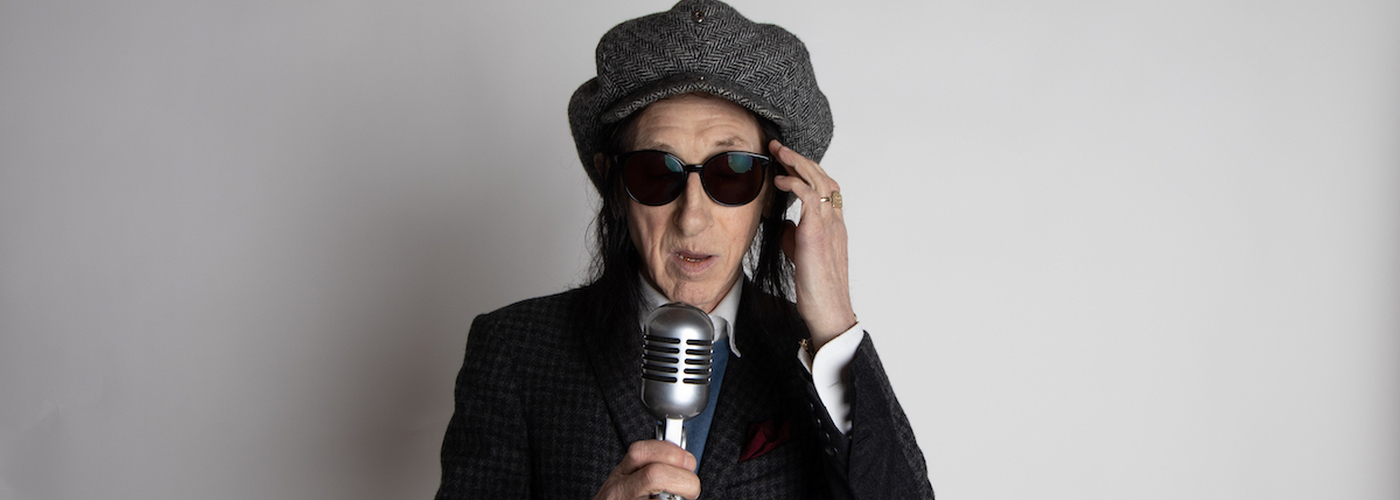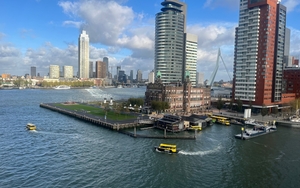Kelly Bishop meets the punk poet of Salford
When I phone John Cooper Clarke at his home in Colchester, he’s been listening to Radio 4’s obituary show, The Last Word. “I listen to it on a Friday to see if I'm on it.”
Immediately we’re giggling like old pals. I’m relieved. I’ve been a fan since my teens and it’s always nerve-racking meeting your heroes. John is warm and effortlessly funny and before I hang up, he agrees to have a glass of wine with me next time he’s in Manchester for his two (now almost sold out) shows at The Bridgewater Hall. I’m holding you to that, John.
I'm seeing the value of pubs now because they've been banned.
The sartorially suave punk poet grew up in the Higher Broughton area of Salford, “opposite the Rialto Picture House” where he spent a lot of time immersed in the movie world that inspired much of his work.
After a 40 odd year career, it’s perhaps surprising that John Cooper Clarke has only actually released two books of poetry. The first, Ten Years In An Open Necked Shirt was released in 1983. The second The Luckiest Guy Alive, came 35 years later. His career has been more as a performer, though he insists that it’s important to write the poems down, saying, “You've got to learn the words somehow”.
A Salford lad
These days, he’s a showbiz guy who often brings his Mancunian wit to daytime TV shows like Eight Out Of Ten Cats Does Countdown, filmed at MediaCity - where he bemoans the irony that you can’t buy a newspaper. He reckons the parts of Salford he grew up in haven’t changed and he doesn’t think MediaCity counts.
“Media City ain't Ordsall any more than The Vatican City is Rome,” he says, “The modern priestly class of show-business is kept apart from the hoi polloi of Ordsall.
“I can imagine how it went in the meeting when they were discussing the construction of MediaCity. 'It will provide some much-needed employment in a depressed area'. I've never heard anybody with an Ordsall accent in employment in MediaCity."
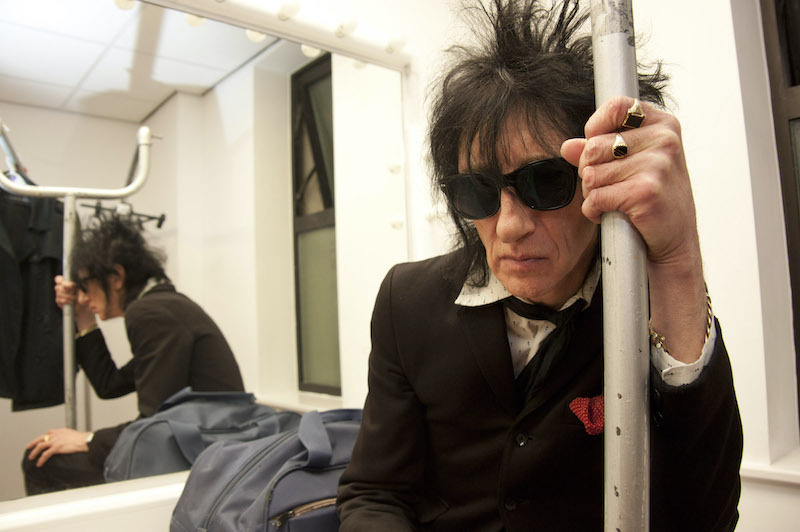
I want to talk to John about eating and drinking out. I know he likes his food, saying in a recent Guardian interview that the only foods he won’t eat are flapjacks, falafel and tripe.
Describing himself as more of “a boulevardier”, John tells me he was never a frequenter of pubs, seeing them as “somewhere your dad went”.
Pubs and clubs are not what they once were
“The clubs I used to frequent: The Twisted Wheel, The Oasis, The Jungfrau - all those great rock and roll venues were really for under 18s. None of them were licensed. They were all Coca Cola and amphetamines. I saw people like John Lee Hooker, The Animals, The Who. Those are the places they were playing - not pubs."
“I'm seeing the value of pubs now because they've been banned. There's no pubs where I live anymore. They've all turned into takeaways, secondhand shops, estate agents. I put it down to the smoking ban. Who would have voted for anybody who said, ‘I'm going to abolish pubs’? And yet they voted for Tony Blair.”
“Whoever went in a pub for the good of their health? They're already selling a range of poisons. So why pick on cigs? Now you get children in them so you can't even swear in a pub anymore. All the things that didn't use to be crimes. Like having a cig and a pint at the same time and being able to swear about current events. You go outside if you like fresh air that much.”
He laughs as he remembers ‘The Vault’, a room many pubs had with “a dartboard, no carpet and no women” - a room where swearing was allowed.
“Anywhere else in a pub, the landlord or landlady would say, ‘There's a room for that kind of language.’ To be honest, [women] wouldn't want to go in The Vault. It's not a place for a first date, is it? Sat around with a load of swearing old blokes playing darts and farting.”
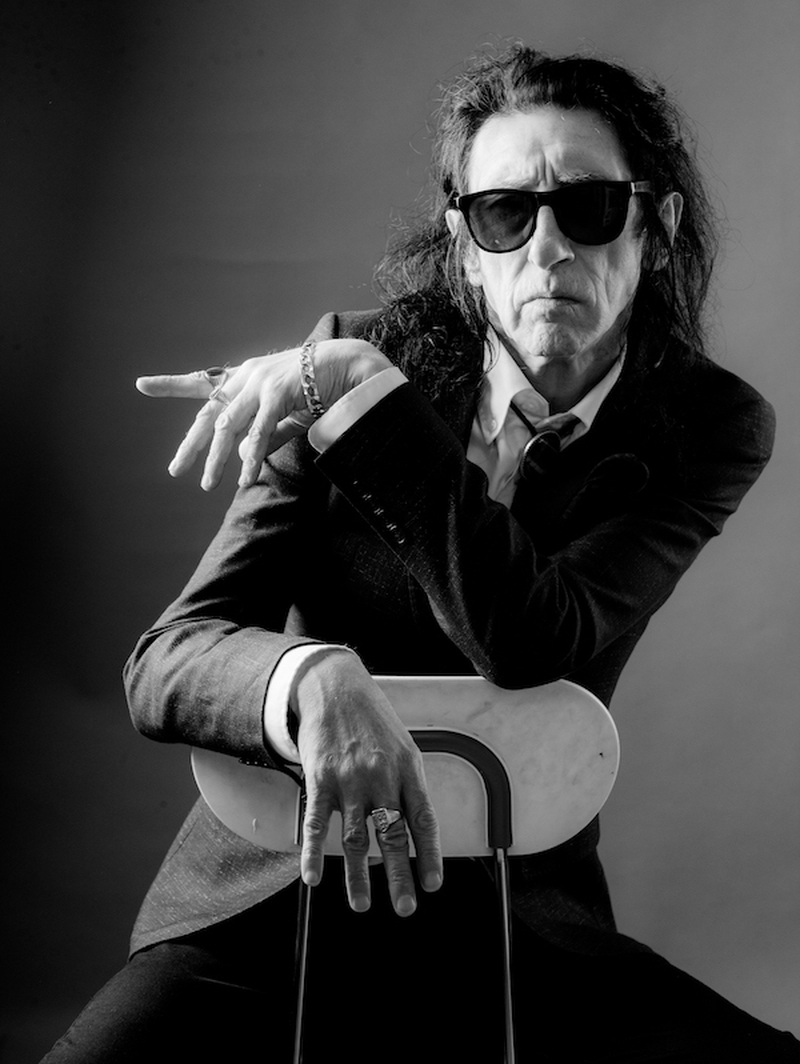
He might not be a pub man but John loves a good restaurant. Last time he came to Manchester he enjoyed a bit of zhuzhed up marrowbone at The Bull & Bear but don’t worry, he’s still a man of the people,
“I'm a fussy eater but I'm not snobbish about it. I can see the worth of a Martin's meat and potato pie. That's the one thing I miss about living in Manchester. If you get one of them early in the day from a branch of Martin's straight out of the oven. Mmm!”
He eats out a lot more these days than in the throes of his well-documented drug addiction where he survived on sugary cakes and pastries. He enjoys cooking at home too, although he’s a “one pan guy”. His wife Evie, who’s French, is the better cook. When I asked about the last time he said his favourite word ‘wow’, he says it was in response to his wife’s confit duck.
“It’s a great word. It’s onomatopoeic innit? Opening and closing your mouth. It's 'mom' upside down. I've just realised that now after all these years.”
Manchester, literary city
This brings us to our shared love of specialised languages like Yiddish, which I notice John lends from a lot, and Polari. We both just love words. John reckons literacy has always been important in Manchester, the birthplace of The Manchester Guardian. But you might be surprised to learn that he’s not a fan of its modern-day iteration. He believes The Guardian now pushes “a narrow set of beliefs”, insisting he was always more of "a red top guy”.
“The relationship that tabloids have with their readership is not a didactic one of master-pupil. It's more of two guys in a pub".
He hastens to add that he values newspapers hugely and doesn’t like to see any newspaper collapse. Even one he’s never read.
“People think the internet is as reliable as a newspaper. It's an alarmingly ridiculous idea. A newspaper is answerable to libel laws for a start.”
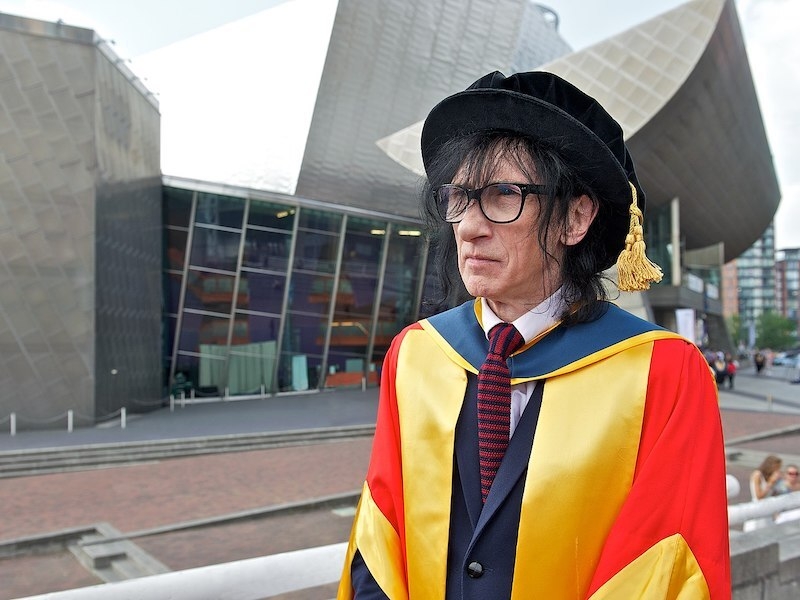
He has a great deal of respect for the “tabloid hack” who puts themselves in danger for a good story.
“I do recognise that there's a lot of the hack in the way I write poetry. The term I'm looking for here is the common touch. I think I've got that. I was always more of a Baudelaire than a Wordsworth. Baudelaire used to write about the modern world as it was in the 1860s in Paris. At the same time, you had people like Wordsworth, waxing lyrical about the Lake District. Maybe it's a limitation in me. I'm from an industrial city.
”But I don't want to overanalyse what I do. My late great friend Barry Cryer used to say, ‘Analysing humour is like dissecting a frog. The frog dies and nobody laughs.’ I couldn't put it better than the late Baz.”
Staying relevant
I ask John what he thinks of modern poets like Kae Tempest who he says he likes and describes as "a river to [their] people".
“Kae writes in a kind of language that I don't really use, addressing a public that I have no knowledge of. Sort of rave kids. There was a cut off in the 80s where people like me were just rendered completely old fashioned. And I've never really shook that off.”
“Nothing ages you more than trying to look like you're 'down with all that'. I'll give you an example whereby I've tried to stay true to myself while dealing with the modern world. That poem I wrote for Plan B for the movie Ill Manors. It involved people that are much younger than myself in the gangster world of East London. There's a bit where I'm in it, reciting Chickentown in an Irish Pub but I wrote this poem especially for it called Pity The Plight of Young Fellows.
“It's kind of Dickensian. The language is old fashioned - even for me. It refers to ‘macaronis’ who were kind of pre-Beau Brummel dandies from 200 years ago. It's a good example of going in the opposite direction, rather than trying to fit in with the ‘yoot'. It's consciously antediluvian.”
He’s a fan of rap music though, “How could I possibly complain? Poetry with swearing in it.”
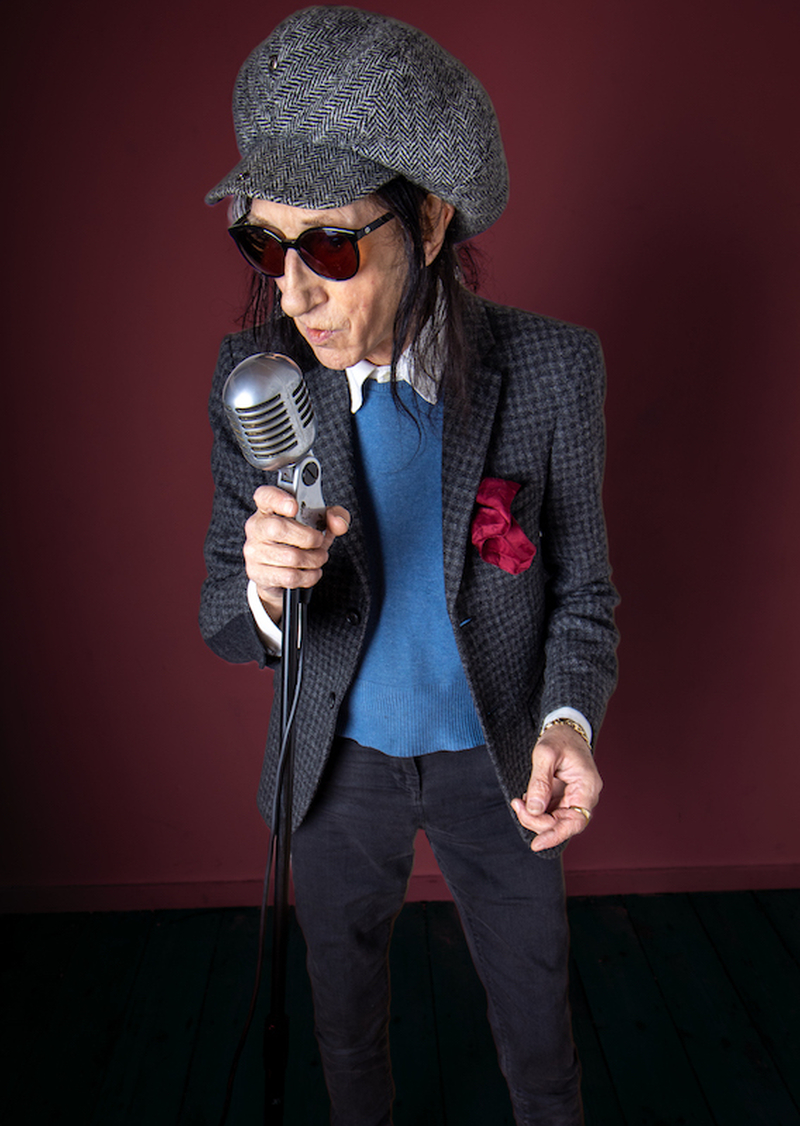
He might consider himself relegated to the realm of the old fashioned but at 73, John Cooper Clarke is as relevant and influential as ever. Famous fans include Ben Drew, aka the aforementioned Plan B as well as Alex Turner and his Arctic Monkeys. John’s thrilled that people “too young to remember punk rock” may have discovered him on a “compulsory” basis when his poems were added to the GCSE syllabus in the 90s.
“I mean, crikey! If anything rejigged my career, it's the Arctic Monkeys doing 'I Wanna Be Yours’.”
“That's how I got into it, from school. Why pull the ladder up? I got into it Michael Gove style, learning it off by heart without even understanding anything about it. What made it easy to remember was the sonorous language of poetry. What it sounds like is the most important part of any poem. I believe that all poetry is meant to be heard.”
A song is not (usually) a poem
It’s notoriously difficult to pin down why, but we agree that a song is not a poem. What's the difference?
“I was watching a programme about Motown. I think it was on Sky Arts. Barrett Strong - the guy that wrote Money, one of the first lyricists with the Motown label - went to Berry Gordy when he was just starting up the label with a book of poetry and said, if you can use any of these for lyrics, that'd be great. Berry showed him how to write songs. He said, 'He taught me how to knock the poetry out of it’.
“I don't think that songs are poetry but I think that a good song has something poetic about it. The term poetic is often used to describe all manner of art: movies, paintings, photographs. If it's got some kind of lasting value, you say it's poetic. The photographs of David Bailey, are quite rightly seen as a poetic take on the 60s. I can only think of one instance where a poem has become a song. The Road to Mandalay by Rudyard Kipling. Sinatra sings it. You can't see the joints. It's a terrific song.
“With a song, you can hold notes on. You can finesse the way you approach any part of the song. Sinatra's a case in point. He was known for his phrasing. He never does the same song the same way twice. He completely dismantles it sometimes and puts it back together. But he’s never mannered. He never relies on style. He's the most straightforward interpreter of a song that it's possible to get. He would approach a song as though it were a poem and then he would decide how to sing it."
John famously set his poetry to music when he signed to Rabid Records - not my favourite way to consume his poetry, I have to tell him and he agrees, saying he just couldn't think of a good argument against it. “In a way it kind of cramps my style.”
Could anyone, I ask, with enough time and dedication, learn how to be a poet or is it something you’re born with?
“Yeah, I think you can learn to be a poet to a greater or lesser extent. There's all sorts of things come into play, innit? Technique. Have you got a sense of humour? But unlike any other art forms, everybody gives it a go. It couldn't be more ‘accessible’. Anybody with a pen and a piece of paper can do it. I don't know why more people don't do it. But I'm glad they don't
On becoming a career poet
“I've never been one of those people that writes poetry as a means of self-expression alone. It's the only thing I ever had a natural aptitude for. It’s really my only skill. So playing to my strengths, I thought, I'm gonna make a living doing this. Anything else would be madness. I didn't want to work for a living when I was a teenager. I just wanted to take the line of least resistance.
“I didn't get any encouragement. Poetry has never been regarded as a reliable engine of wealth. I thought maybe I could get a job in advertising. The same way that somebody who's a good painter back in them days would have been a commercial artist.
“The only person that I could ever point at that ever made a living out of poetry was Charles Baudelaire. Everybody else has been teachers, librarians or whatever. I was in it to win it so I always wrote with a kind of loosely specified audience. I always thought, who would like this?
"For many years as well - this is where I’ve been ploughing the lonely furrow - rhyming was seen to be a capital offence. For decades it was seen as ‘corny’. I never really understood that. I can write blank verse, but where's the groove?
“There's a certain snobbery that poetry that people enjoy must, by definition, be stupid. Whenever I cite Pam Ayres as being an influence on me - which she was because of her success - it would always be met with laughter. I think she's great. She writes about her world, same as I write about mine."
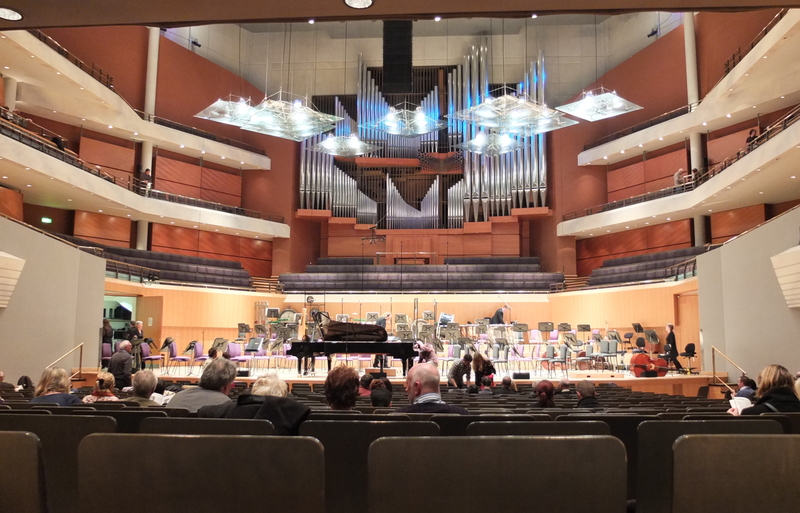
In John’s fantastic memoir, I Wanna Be Yours, he talks a lot about his friend, the late Mark E Smith. Surely a poet of the music world, if ever there was one, and one whose impact on left-field arts is impossible to overestimate. See Jim Moir aka Vic Reeves’ paintings for evidence of how broad his impact still is.
“You never meet an artist who isn't a fan [of Mark]. I thought he had a lovely voice, you know? Very sonorous, a kind of mezzo baritone. He really wasn't limited to any sub-genre. When you hear his version of Lost In Music you realise that even when Sister Sledge did it, it was always a Fall tune.”
Finally, we get back onto the subject of Radio Four and another shared love: I’m Sorry, I Haven’t a Clue which has survived many personnel changes from the deaths of Willie Rushton and Barry Cryer as well as long time presenter, Humphrey Lyttelton making way for Jack Dee. John reckons Jack has done a terrific job of maintaining Lyttelton’s air of “lugubrious resignation”.
“I love a miserable comedian. My all-time favourite, Sean Locke was the funniest guy alive. I've got MediaCity to thank for introducing me to the genius that was Sean Locke. I do love a circular conversation.”
I Wanna Be Yours by John Cooper Clarke is available to buy now from all good book shops.
Grab one of the last remaining tickets for John Cooper Clarke at The Bridgewater Hall here. JCC will be joining Squeeze on their UK tour - tickets available from Gigs and Tours.





